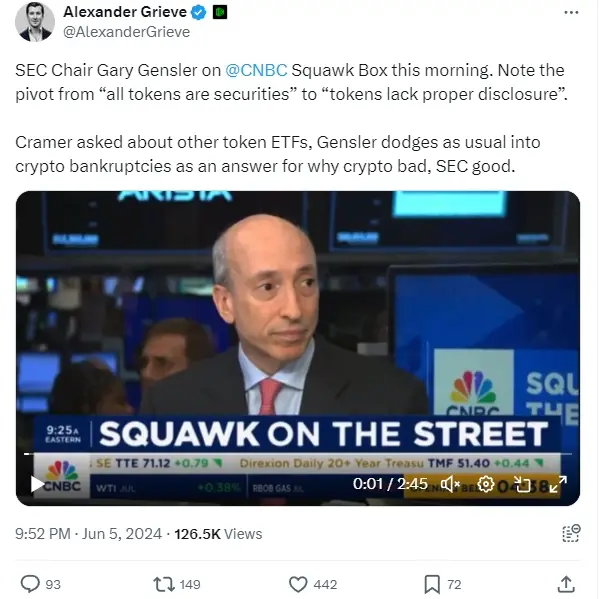I. Introduction
Ethereum ETFs are poised to revolutionize the investment landscape, providing a new avenue for both retail and institutional investors to gain exposure to Ethereum without the complexities of direct cryptocurrency ownership. The recent approvals by the U.S. Securities and Exchange Commission (SEC) have sparked significant interest and debate within the financial community.
These developments mark a pivotal moment for Ethereum, potentially mirroring the transformative impact seen with Bitcoin ETFs. This article aims to dissect the key factors influencing Ethereum ETFs, including the SEC’s role, valuation challenges, market sentiment, and the broader political and legal considerations. By understanding these dynamics, investors can better navigate this emerging investment opportunity and make informed decisions.
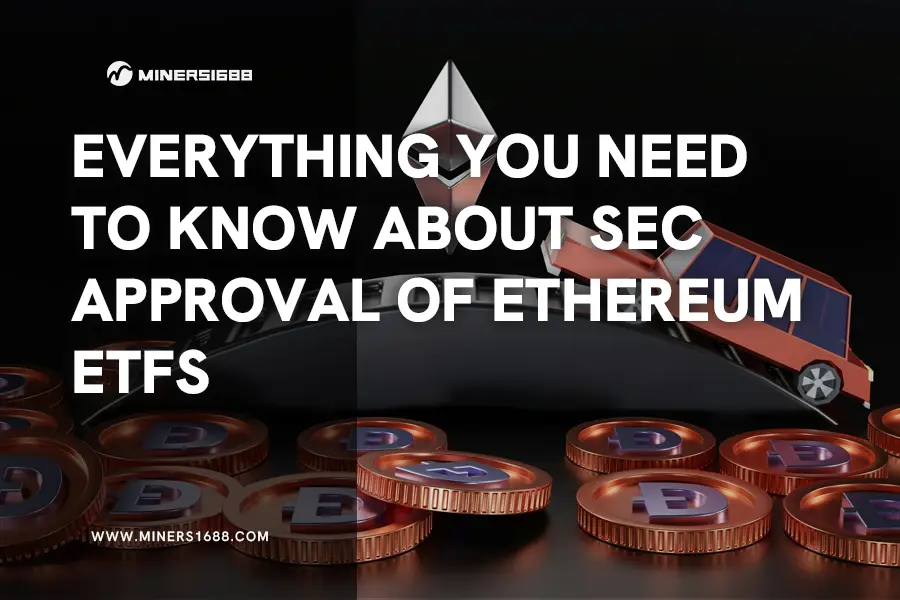
II. The Role of the SEC in Ethereum ETF Approvals
Gary Gensler’s Statement on the Issuer’s Responsibility
The approval process for Ethereum ETFs has been significantly influenced by the stance of the SEC, particularly the statements made by its chairman, Gary Gensler. Gensler has emphasized that the onus for the approval of spot Ether ETFs lies with the issuers. According to Gensler, the SEC’s role is to review the applications and ensure that they meet regulatory standards, but the speed and responsiveness of the issuers in addressing SEC comments are crucial determinants of the approval timeline.
1. Overview of SEC’s Approval Process
The SEC’s approval process for ETFs involves a detailed review of the issuer’s application, which includes an S-1 registration statement. This document must provide comprehensive information about the ETF, including its investment strategy, risks, and the mechanism of its operation. Once the SEC receives the application, it reviews it and may provide feedback or request additional information. Issuers are then responsible for responding to these comments promptly and adequately to move forward in the approval process.
2. Emphasis on Issuer Responsiveness
Gensler’s comments highlight that the SEC does not intend to delay the process unnecessarily. Instead, the pace of approval largely depends on how effectively and swiftly the issuers address any concerns raised by the SEC. This approach puts significant pressure on issuers to be thorough and responsive in their applications, ensuring that they meet all regulatory requirements to facilitate a smoother approval process.
Comparison with Grayscale’s Bitcoin ETF Legal Challenge
The SEC’s approach to Ethereum ETFs cannot be fully understood without considering the precedent set by previous ETF approvals, particularly the legal challenge posed by Grayscale regarding its Bitcoin ETF.
1. Influence of Past Legal Challenges on Current Approvals
Grayscale’s challenge was pivotal in shaping the SEC’s current stance on cryptocurrency ETFs. The company successfully argued in court that the SEC’s approval of Bitcoin futures ETFs should logically extend to spot Bitcoin ETFs, given the similarities in their underlying assets and market dynamics. This legal victory forced the SEC to reconsider its position and apply a more consistent regulatory framework to other cryptocurrencies, including Ethereum.
2. Similarities in Regulatory Treatment Between Bitcoin and Ethereum
The SEC’s decision to approve spot Ethereum ETFs appears to be influenced by the rationale applied in the Grayscale case. Both Bitcoin and Ethereum share similar regulatory considerations, including their classification as commodities and the existence of futures markets. By aligning its regulatory treatment of Ethereum with that of Bitcoin, the SEC aims to avoid inconsistencies and potential legal challenges. This move underscores the importance of legal precedents in shaping the regulatory landscape for cryptocurrency ETFs.
III. Challenges Facing Spot Ether ETFs
Valuation Issues Highlighted by Fireblocks
One of the primary challenges facing spot Ether ETFs is the difficulty in valuing Ethereum’s diverse use cases. Unlike Bitcoin, which is often seen as a digital store of value akin to gold, Ethereum’s value is more complex and multifaceted. Ethereum serves as a platform for decentralized applications (dApps), smart contracts, and various other technological innovations. This complexity can make it challenging to establish a clear and consistent valuation method for Ethereum ETFs.
1. Difficulty in Valuing Ethereum’s Use Cases
Stephen Richardson, managing director of financial markets at Fireblocks, points out that the metrics used to evaluate Ethereum’s technology-driven investment use cases are far less clear than those for Bitcoin. While Bitcoin’s value can be relatively straightforwardly linked to its scarcity and adoption as a digital asset, Ethereum’s valuation must consider its broader utility. The value of Ethereum is intrinsically linked to the adoption and utilization of the Ethereum blockchain, including the success and growth of dApps, DeFi projects, and other innovations built on its network. This makes it harder to arrive at a consensus on Ethereum’s true market value, impacting investor confidence and inflows into Ethereum ETFs.
2. Comparison with Bitcoin’s Steady Store of Value
Bitcoin’s reputation as a stable store of value simplifies its valuation. Investors can use established financial metrics and historical data to gauge Bitcoin’s market performance. Ethereum, however, requires a more nuanced approach. Its valuation is influenced by a range of factors, including network activity, the number of active developers, and the volume of transactions on its blockchain. This complexity necessitates a deeper understanding of the technology and market dynamics, presenting a significant challenge for spot Ether ETFs.
Metrics for Evaluating Ethereum
To address these valuation challenges, several metrics can be used to evaluate Ethereum’s performance and potential as an investment asset.
1. Total Value Locked (TVL)
Total Value Locked (TVL) is a key metric that measures the amount of value being used within Ethereum-based DeFi applications. It provides insight into the level of activity and investment within the Ethereum ecosystem. A higher TVL indicates greater utilization and trust in Ethereum’s DeFi applications, suggesting a robust and growing network.
2. Transaction Volume and Number of Users
Transaction volume and the number of active users are critical metrics for assessing Ethereum’s adoption and usage. High transaction volumes and a growing user base reflect increased demand for Ethereum’s blockchain services. These metrics can provide a clearer picture of Ethereum’s market dynamics and potential for growth, helping investors make more informed decisions.
3. Other Suggested Metrics for Valuation
In addition to TVL and transaction volume, other metrics such as the number of smart contracts deployed, developer activity, and gas fees can offer valuable insights into Ethereum’s valuation. Monitoring these metrics allows investors to gauge the health and expansion of the Ethereum network, informing their investment strategies.
IV. Market Sentiment and Investor Confidence
Analysis of Ethereum Futures Markets
The futures market provides valuable insights into investor sentiment and confidence regarding Ethereum and its ETFs. Despite the excitement surrounding the approval of Ethereum ETFs, the futures market has shown mixed signals.
1. Mixed Signals from Futures Market Regarding Optimism
Futures contracts for Ethereum, which allow investors to speculate on its future price, have exhibited varying degrees of optimism. While there was a brief spike in optimism following the initial approval announcements, this sentiment has not been sustained. For instance, the funding rates for Ethereum perpetual futures contracts have remained relatively balanced, indicating a lack of overwhelming bullish sentiment. This suggests that while there is interest in Ethereum ETFs, investors are cautious, likely due to ongoing regulatory uncertainties and market volatility.
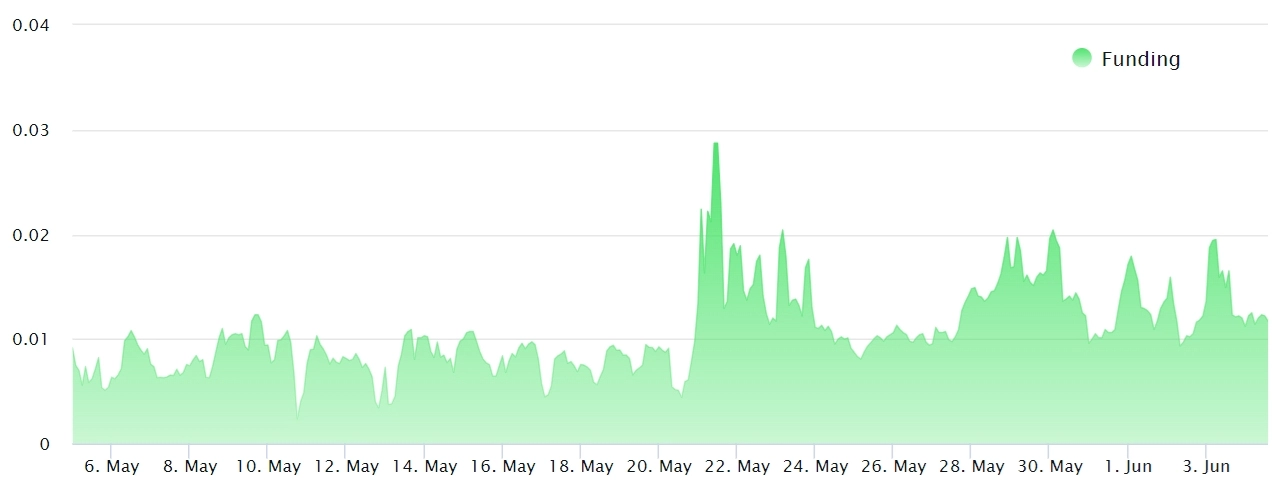
Ether perpetual futures 8-hour funding. Source: Laevitas.ch
2. Impact of Regulatory Uncertainties and High Fund Fees
Regulatory uncertainties play a significant role in shaping market sentiment. The approval process for Ethereum ETFs has been closely watched, and any potential delays or additional regulatory scrutiny can dampen investor enthusiasm. Additionally, concerns over high management fees associated with existing cryptocurrency funds, such as those managed by Grayscale, have also contributed to cautious investor sentiment. High fees can offset the potential benefits of investing in Ethereum ETFs, leading to a more tempered response from the market.
Comparison of Spot ETF Inflows Between Bitcoin and Ethereum
To better understand the potential impact of Ethereum ETFs, it is useful to compare them with the historical performance of Bitcoin ETFs, which have had more time to establish themselves in the market.
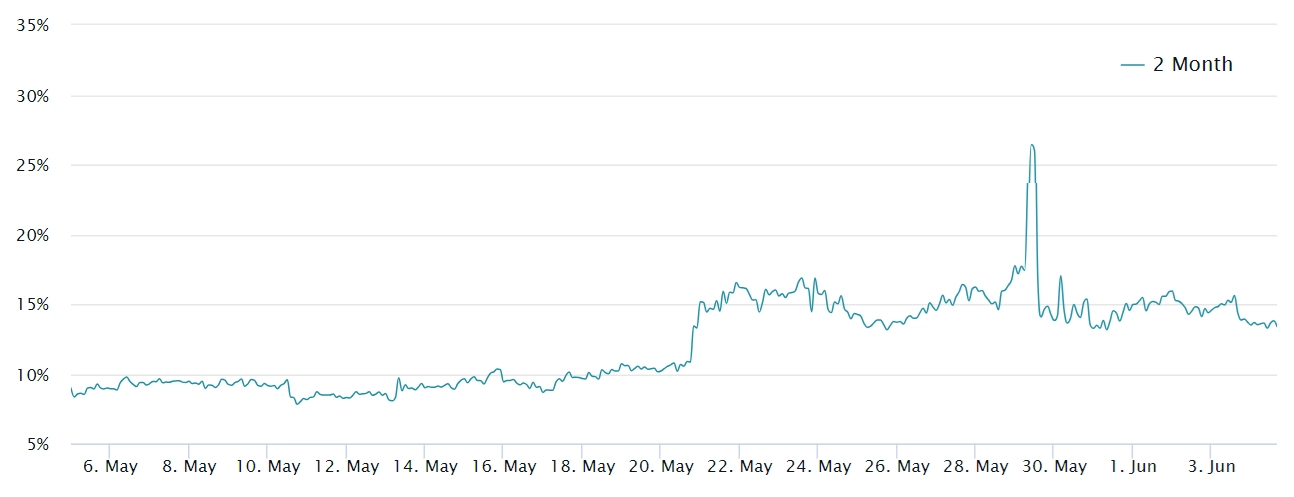
Ether 2-month futures premium relative to spot ETH. Source: Laevitas.ch
1. Historical Inflows for Bitcoin ETFs
Bitcoin ETFs experienced significant inflows upon their initial launch. For example, the first day of trading for Bitcoin ETFs saw inflows exceeding $655 million, demonstrating strong investor interest and confidence. This substantial initial investment was driven by Bitcoin’s established reputation as a digital store of value and the relatively straightforward valuation metrics associated with it.
2. Projected Inflows for Ethereum ETFs
In contrast, projected inflows for Ethereum ETFs are expected to be more modest. Analysts predict that Ethereum ETFs might capture only 10-20% of the inflows seen by Bitcoin ETFs. This lower projection is attributed to the complex nature of valuing Ethereum, as well as the cautious sentiment observed in the futures market. Despite this, even a fraction of Bitcoin’s inflows represents a significant amount of capital, indicating strong interest and potential for growth.
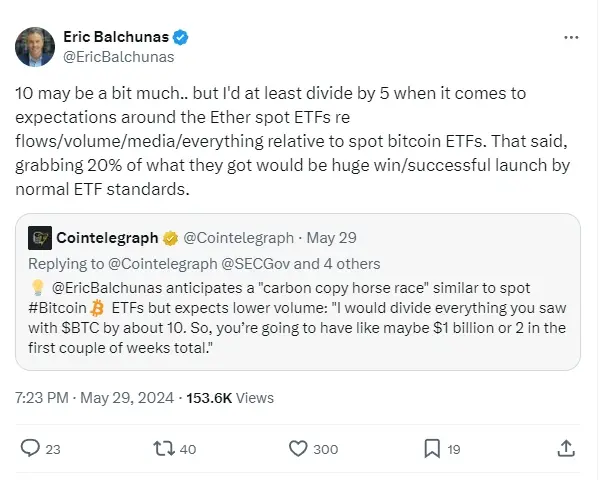
Source: Eric Balchunas
3. Potential Impact on Ethereum Prices
The introduction of Ethereum ETFs could have a notable impact on Ethereum prices, both in the short and long term. In the short term, the approval and launch of these ETFs are likely to drive increased demand for Ethereum, as investors seek exposure through these regulated financial instruments. Over the longer term, sustained inflows into Ethereum ETFs could support higher price levels, particularly if the underlying metrics, such as network activity and developer engagement, continue to show positive trends.
V. Political and Legal Considerations
Bernstein’s Analysis of the SEC’s Decision
The SEC’s decision to approve spot Ether ETFs has been the subject of much speculation, with some analysts suggesting that political factors may have played a role. However, a detailed analysis by Bernstein offers a different perspective, arguing that the SEC’s move was more about pragmatism and legal strategy.
1. Avoidance of Legal Battles as a Primary Motivator
According to Bernstein analysts Gautam Chhugani and Mahika Sapra, the SEC’s approval of Ethereum ETFs was likely driven by a desire to avoid potential legal battles. The SEC had previously faced legal challenges with Bitcoin ETFs, particularly from Grayscale, which successfully argued that the approval of Bitcoin futures ETFs should logically extend to spot Bitcoin ETFs. By approving spot Ether ETFs, the SEC could be aiming to preempt similar legal challenges and demonstrate a consistent regulatory approach.
2. Political Pressure Theories and Their Validity
While there has been speculation that political pressure from Democrats, particularly in the lead-up to the U.S. Presidential election, influenced the SEC’s decision, Bernstein analysts suggest this narrative is less credible. They point to President Biden’s veto of the SEC’s Staff Accounting Bulletin (SAB) No. 121 repeal bill as evidence that political motivations were not the primary driver. Instead, the SEC’s decision appears to be more aligned with ensuring regulatory consistency and avoiding legal complications.
Implications of SEC’s Approach for the Crypto Industry
The SEC’s pragmatic approach to Ethereum ETFs has significant implications for the broader cryptocurrency industry. By approving these financial instruments, the SEC is setting a precedent that could shape future regulatory actions and market developments.
1. Positive Outcomes for the Industry
The approval of Ethereum ETFs is a positive development for the cryptocurrency industry, signaling a degree of regulatory acceptance and legitimacy. This move could encourage more institutional investors to enter the market, providing additional capital and stability. Furthermore, it demonstrates that the SEC is willing to work with the cryptocurrency sector, potentially leading to more nuanced and supportive regulatory frameworks in the future.
2. Future Regulatory Landscape for Cryptocurrency ETFs
Looking ahead, the SEC’s handling of Ethereum ETFs could influence the regulatory landscape for other cryptocurrency-based financial products. As the market for digital assets continues to evolve, regulators will likely draw on the lessons learned from the approval and implementation of Ethereum ETFs. This could result in clearer guidelines and more streamlined processes for future cryptocurrency ETFs, fostering greater innovation and growth within the industry.
VI. Conclusion
The approval of Ethereum ETFs by the SEC marks a significant milestone in the evolution of cryptocurrency investments. This decision has been influenced by a variety of factors, including the responsiveness of issuers, legal precedents set by Bitcoin ETF approvals, and the complex nature of valuing Ethereum’s multifaceted use cases. Market sentiment has shown cautious optimism, with futures markets reflecting mixed signals and projected inflows for Ethereum ETFs expected to be lower than those for Bitcoin. Political and legal considerations have also played a crucial role, with the SEC aiming to avoid legal battles and maintain regulatory consistency.
The future of Ethereum ETFs looks promising, albeit challenging. As more investors gain exposure to Ethereum through these regulated financial instruments, the market could see increased liquidity and stability. However, the complexities of valuing Ethereum’s diverse use cases and the potential for high management fees remain significant hurdles. The SEC’s pragmatic approach sets a positive precedent, but ongoing regulatory developments will be critical in shaping the landscape for Ethereum and other cryptocurrency ETFs.
As the landscape of cryptocurrency ETFs continues to evolve, staying informed and adaptable is crucial for investors. Consider the factors discussed in this article when evaluating the potential of Ethereum ETFs for your portfolio. What are your thoughts on the SEC’s approach to Ethereum ETFs? Do you believe the market sentiment will shift more positively in the near future? Share your insights and join the discussion in the comments below.
References



